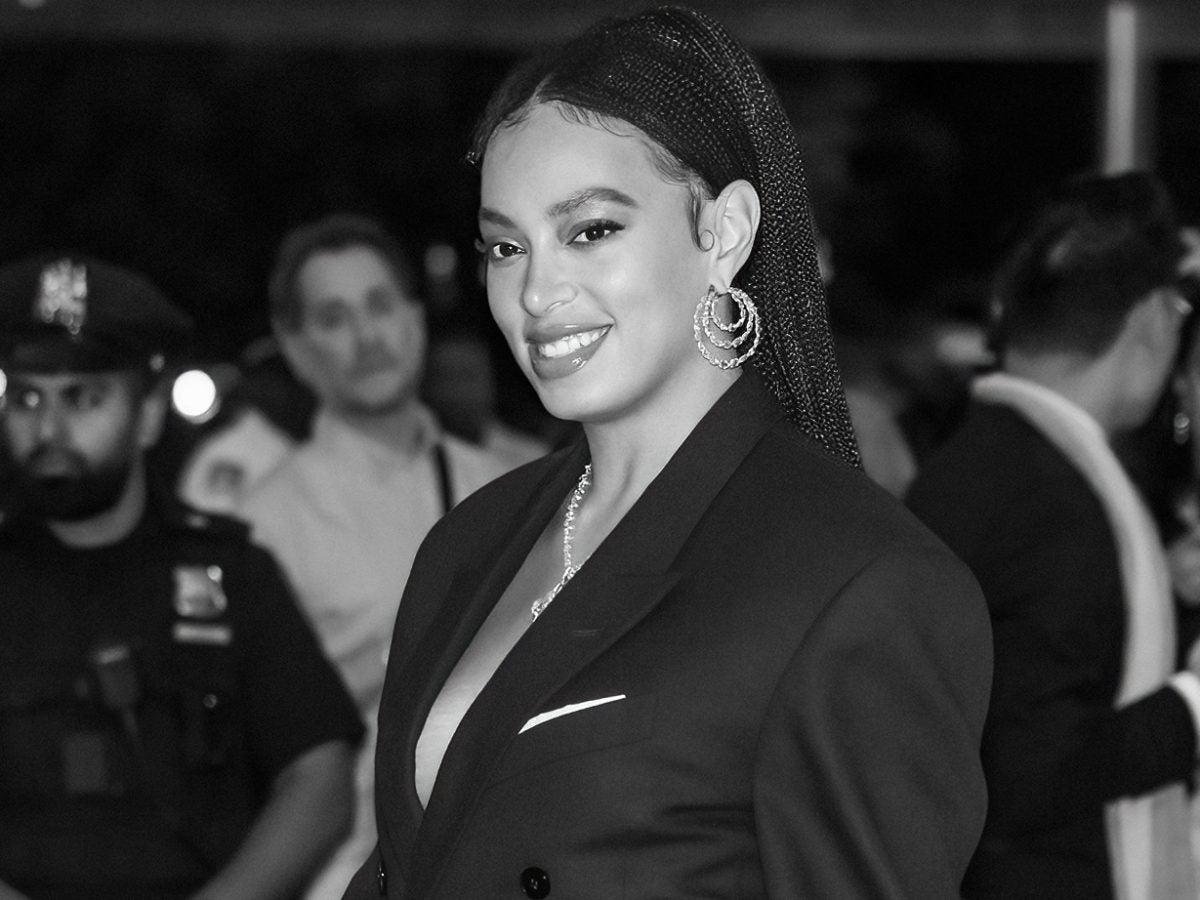
On Wednesday night, the New York City Ballet celebrated the 10th anniversary of its annual all-Fashion Gala. Since its inception in 2012, the event has fostered collaborations between designers, choreographers, and musicians. Artists of all types draw from their respective, often disparate corners in the spirit of collaboration, innovation, and of course, style.
Over ten years, the fashion gala has raised over 24 million dollars in funding, featuring artists varied as Dries Van Noten, Giles Deacon, Raf Simons, Valentino, Justin Peck, and James Blake – remaining one of the city’s most anticipated cultural events, a showcase of not only what art is at present but what it could be. It has been an attempt to answer the question of whether fashion and dance can become one. As a former dancer turned multidisciplinary artist, there is perhaps no one more suited to answer than Solange Knowles, who wrote an original musical score, her first and no doubt last turn as a composer.
As expected, the show before the show was provided by the gala attendees. Spotted filing into the David H. Koch theater: a pair of Tabi boots bearing the wearer’s name on their soles; a woman draped in an architectural creation which for a moment, seemed to make sitting an impossibility; opera gloves of supple, black leather, and enough plumes to fill an aviary.
Wednesday’s event was set to honor Sarah Jessica Parker, who serves as its vice chair, (SJP was not in attendance, due to an urgent family matter) heading a board of directors that includes the likes of Laverne Cox, Diane Kruger, Claire Danes, and Elaine Welteroth. Premiering were three new ballets, set to musical compositions by James Blake, Samuel Barber, and Knowles, who worked with designer Alejandro Gomez Palomo, and fellow wunderkind, choreographer Gianna Reisen. This is 23-year-old Reisen’s third piece for the ballet.
Knowles, however, was without a doubt, the draw of the evening. Excited chatters about “Solange’s Ballet”, formally titled “Play Time”, buzzed through the theater halls. Knowles is, stunningly, only the second black woman to ever write a score for the NYCB. The first, Lido Pimienta, composed “sky to hold” for the company in 2021. Last year, the Met Opera also welcomed their first black composer, Terrence Blanchard, signifying a broader trend of the high arts necessary embrace of the modern, a welcome diversification, and Knowles’ natural suitability to the avant-garde, her multidisciplinary bent.
Following a stirring performance of George Balanchine’s Symphony in C, The sunshine yellow curtain lowered then lifted, revealing a bouquet of dancers. Situated in the stage’s center, they were literally dazzling, eliciting first gasps and then applause from a rapt audience. Inspired by a recent collection for his label Palomo Spain, Palomo fashioned the dancers in boxy tutus with exaggerated, almost severe shoulders, pinstriped head to toe in nearly 1 million Swarovski crystals. Their formation recalls the video treatment for Cranes in The Sky, which featured Issey Miyake-inspired designs (Miyake was another Fall fashion Gala collaborator and was duly represented among the crowd) and a similar contemplative stillness. The suits, all boxy angles, and exaggerations impose, and preclude physical intimacy, while Reisen’s choreography, backed by Knowles’s free jazz style, has the dancers gliding into each other’s space. Fluttering their arms in a push-pull movement, akin to opposing magnets, making visual the tautology: two people attempt togetherness, luring and repelling each other in turn.
Solange appeared to a roar of applause, smiling and perfect in a double-breasted suit that seemed a sister design to those of the dancers. During the performance, Palomo’s designs complemented Reisen’s choreography, embodying what makes the event so captivating; the challenge of making wearable art suitable for performance.
Justin Peck’s Aptly titled “solo”, written by Samuel Barber and styled by Raf Simons followed, the dancer somber and stark in his polka dot tights. Where the Knowles/Reisen performance seemed to be a struggle towards collectivism and intimacy, the following performances were largely solo endeavors, more stark and apocalyptic. James Blake’s moody, silken vocals closed the show, perfectly matched to a stunning light display by Mark Stanley. The final performance featured two male dancers, performing a moving, sensual duet.
As a musician, visual artist, and dancer, Knowles is an embodiment of the spirit of the NYCB, its multidisciplinary ethos, and its willingness to challenge convention, the delights of dreams and play. The end result is magical and buoyant, making so much sense that you wonder what took so long for it to happen.







It’s not that Knowles is the first or second black woman capable of composing a ballet for the NYCB, but she does feel perfect for it.
Play time will be at NYCB for several dates in October 2022 and spring 2023.





